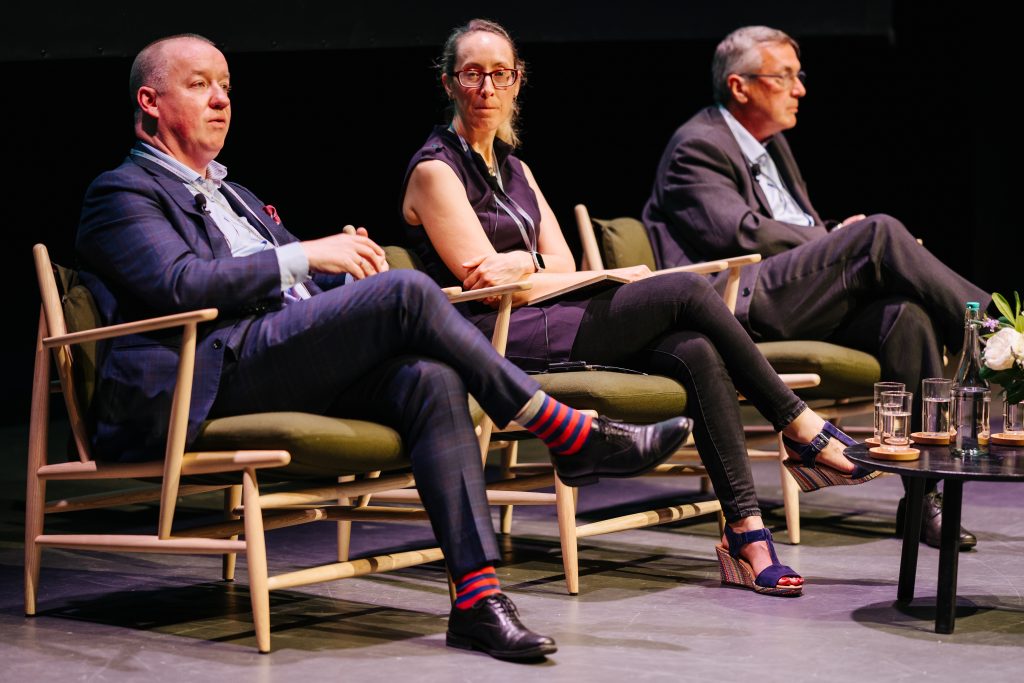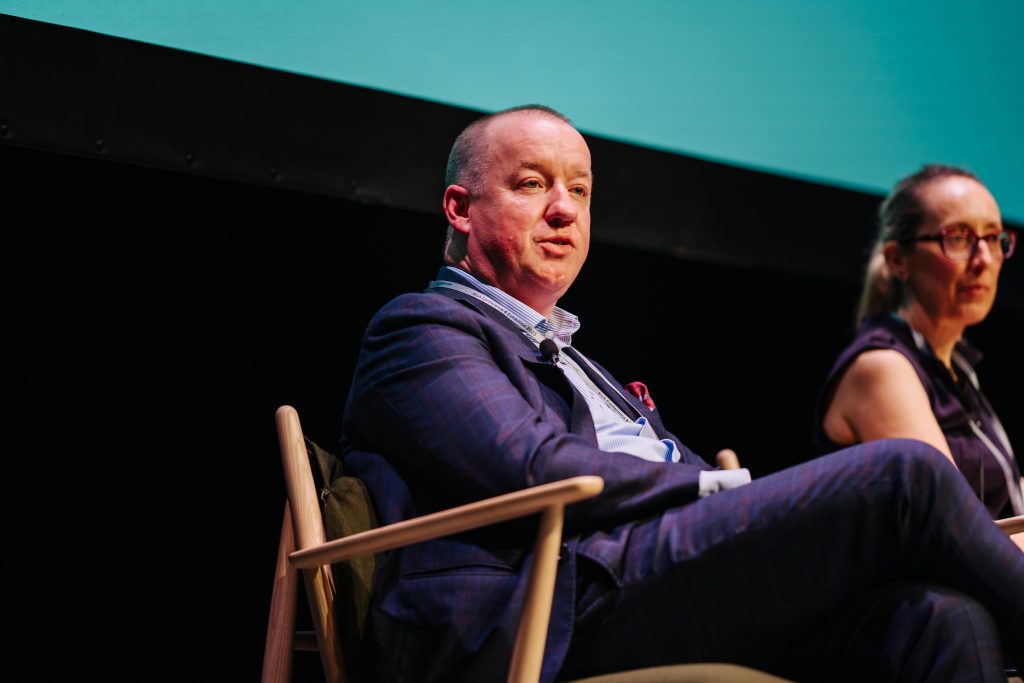Do Academics Make the Best University Leaders?
Yes? but……
Development Monthly | #21 July 2023 | Conference Reflections
Professor Ken Sloan (he/him)
Harper Adams University
A Reflection on the Panel Session for the AUA Conference 2023
The inspiration for the session was a THE article with the title ‘Give Administrators a Go at The Top Job’ which was attributed to me arising from an interview I gave on my return from Australia. Interestingly, the whole session seems to have been fired off by a slight misnomer. The reason? I did not actually say that!
That initial stumble did not prevent us from having a wide-ranging and stimulating discussion about the topic of institutional leadership and what it takes to be an effective leader. Thea Gibbs expertly chaired our panel and I was delighted to sit alongside Professor Stuart Croft, Vice-Chancellor of the University of Warwick, and Associate Professor Michelle Gander, Dean (People and Resources) of Flinders University, Australia.
Perhaps, controversially, we started by being in broad agreement. By posing the question as a binary choice between academic and professional leaders, we risked making it a ‘them v us’ issue, when the real issue must be what does a university need from its leaders.
In the THE interview I suggested that, given there is significant diversity of institutions, surely that might suggest that the aim must be to find a leader who has the right skills, experience and capabilities for each institution at the time and in its context.
I remain of the view that in the majority of institutions, especially where national and international education and research excellence are priorities, it follows that an academic leader with an education and/or research track record, pursued alongside an increasingly broad academic career, is likely to have the right experience to lead those institutions. Amanda Goodall’s latest book confirms this. In our panel discussion we explored the extent to which the priority is academic experience or academic credibility. We agreed that the latter is vital to be a leader of all higher education institutions. The former is arguably a pre-requisite for some.
The panel agreed that academic experience in isolation is not sufficient. Being a Vice-Chancellor or a member of the senior executive is about leadership across the whole institution. Thus, it follows that leadership experience in its variety of guises is vital. All employees and students matter in making the institution successful.
Institutional Context:
Some institutions are adopting growth and excellence strategies. Understanding how to diversify revenue streams without diminishing academic quality must be integral to this. Other institutions are pursuing ‘purpose’ focused strategies. Understanding how to deliver impact at scale would appear to be vital experience to bring to the leadership table. A significant number of institutions are focused on their financial sustainability. As revenues have either stagnated or come under pressure, understanding how to do more with less, removing costs without affecting quality, and keeping a community together through this, are all essential skills and experience for leaders in this context. These different contexts invite a breadth of possible candidates for institutional leadership, each of which may have followed a different career path.
We discussed the external face of institutions. For many institutional leaders the focus of their time includes building relationships with their Councils/Boards, working with government and related organisations, influencing policy, building regional, national and international networks, and seeking collaborative partners in industry and through philanthropy. All whilst retaining a presence with and relevance to the institution’s students, academics, professional service employees and communities. Establishing credibility across all of these audiences and stakeholders is an integral part of institutional leadership. Once again, this suggests that the career path taken could be fairly broad with some or all of these things covered in a variety of ways.
We did discuss so called ‘outsiders’ and the impact that they can have on the institutions they lead. We discussed a number of examples where bringing someone in from outside the sector has brought significant benefits, as well as some where the impact might have been less positive than anticipated. This topic forms another book chapter which I wrote last year where I try to examine different types of ‘outsiders’ and what institutions can do to maximise the success of their appointment. One key question which arises is whether, when looking outside of the HE sector, are search organisations and appointing panels really embracing the diversity of experience that is available to them inside the sector? Our discussion suggests that this might require more attention in future.
Academic Specialism vs Breadth:
The final area we focused on was specialisms versus breadth and the impact that this can have on have on career structures, choices and opportunities. As academics develop their career, if they choose to take on a leadership role at department or faculty level, they are likely to be exposed to challenges and decision making at a broader level than the academic area they specialise in. We questioned whether the same can always be said for professionals. As our complex regulatory and legal environments have grown, so has the need for experts and specialists. There is an increasing risk that taking a linear approach through a particular career track may limit exposure to the breadth of challenge contexts needed of institutional heads and senior leaders. That said, we have seen institutions appointing finance and estates directors to heads of administration, rather than just recruiting from academic registrars and university secretaries as might have been the case previously.
In the end, what does this all mean? Do academics make the best university heads, or is it a viable route for people from a range of other backgrounds? The panel agreed that the context really determines the outcome and the context has, perhaps, never been more challenging. There are threats at local, national and international level. Many of these have nothing to do with the higher education sector per se, but have the potential to affect it significantly. Climate change, migration, the energy transition, national debt levels, geopolitical insecurity, food security, to name but a few. Universities need leaders with the capability and imagination to navigate a path through these, and to see how addressing some of them can provide opportunities for their academic communities, students and employees. It would be naïve to assume that the only place to find leaders who can do this are in the academic community. However, whoever leads needs to ensure that the core purpose of universities: scholarship, education, impact and placemaking, can be secured. In many cases these leaders will still come from those academic communities who have delivered with scarce resources, built impactful collaborations, grappled with complex policy settings, elicited new knowledge and have inspired a new generation. Yet, there is space for others. Our view was that these opportunities are likely to increase in the future as institutional missions continue to diversify.
So, what can you do to increase the opportunity that you might be able to make the step from professional services leader to institutional leader? Firstly, value what you do. This is not and should never be about academics versus professionals as appropriate leaders. Universities need both and environments where there is a parity of esteem are most likely to deliver for all. Secondly, do not simply wait for your career to deliver breadth for you. If you do not know what an institutional leader does, ask them. This will help you to work out if it is really something you want to do, but might also suggest some decisions and choices you might need to make to increase your credibility as a potential candidate in the future. Your individual agency to shape and steer your own career is vital. Finally, you might need to take some risks: A lateral step on a project, an international move, a secondment to an external body, moving to an institution with different challenges and priorities to your previous one, taking a career break for some professional development that your role is not exposing you to. Who knows?
One thing is clear. The challenges ahead are only going to get more urgent, diverse and sometimes existential. Yet, so are the opportunities.
Government will be in the mix but it will be for institutions to find their way through. The need for leaders who are intellectual, social, economic and emotional acrobats will be ever more important. Search consultants, councils and appointing panels owe it to their institutions to search far and wide for the candidates that will be best placed to steer a path through this. Goodall’s most recent book demonstrates the significant impact that academic leaders can bring to institutions pursuing outstanding scholarship as their determining priority. This panel discussion suggests there are many different types of institution, each wanting to deliver the best impact possible. If you decide you could be a candidate to lead one, do so with open eyes but go for it. It is in all of our interests for there to be robust competition amongst outstanding candidates from whom the next generation of leaders will come. Our sector needs it, but so does society and the planet which rely on the essential work our sector does. Knowing how much talent we have available, if we are willing to look, makes me optimistic.
Join the discussion @The_AUA #Develop
Also in this issue of Development Monthly



0 comments on “Do Academics Make the Best University Leaders? Yes? but……”